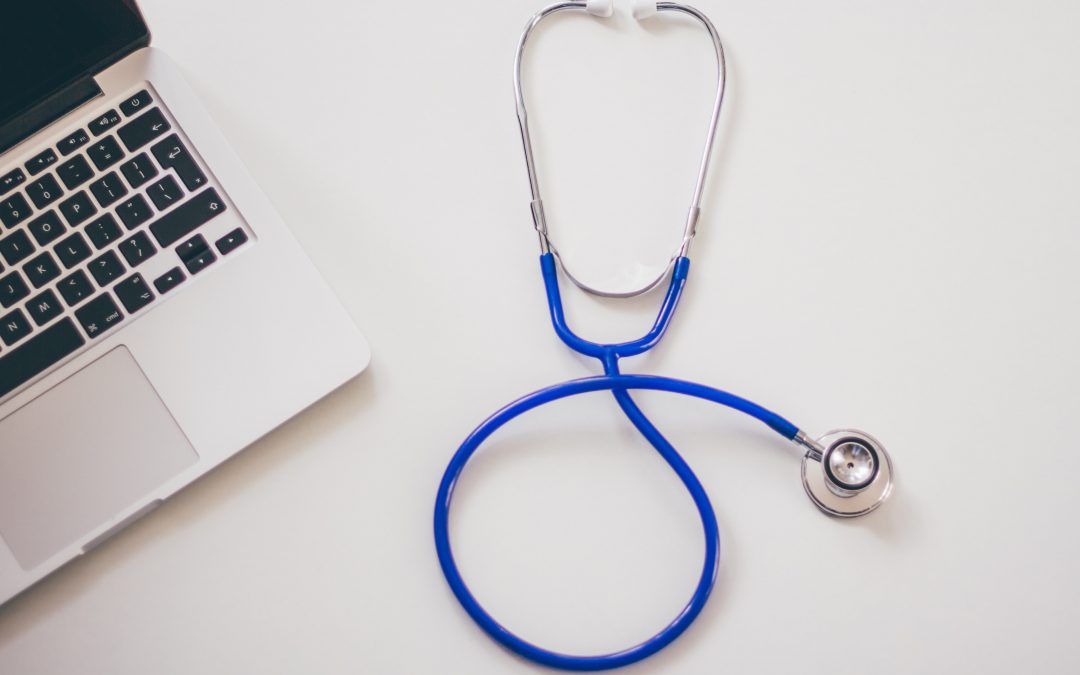Everyone from AI experts to the technologically illiterate have realized that AI will change the world as we know it. The AI industry is receiving billions of dollars in investments, and the world’s biggest tech companies are racing to develop AI product lines that will assist businesses, governments, schools, and everyday individuals worldwide.
One of the biggest areas that AI is poised to significantly transform is the healthcare industry. Specifically, medical professionals who work in hospital settings will be seeing world-shifting changes over the next few years.
If you are currently in medical school, take a deep breath: There will not be any robo-neurosurgeons who will steal your job. At least not yet. And if there are down the line, then just go into dermatology instead: the hours are good and the pay is great.
So, we are past the point of wondering whether AI in medicine will change the world, but there are still many unanswered questions about just how it will change the world.
If you are specifically wondering how AI will change the medical world, then read on for the three biggest areas that AI will help in.
Write Up Patient Notes
This is a major time-saver for doctors everywhere.
Many days, doctors’ post-work routine involves more work, namely the typing up of medical reports that summarize the day’s work with patients.
that this work is certainly valuable for helping doctors reflect on and think critically about specific patient cases. They have also noted that this work can take up hours of off-the-clock time, which can lead to burnout and fatigue among doctors, which only heightens the risk of patients receiving effective care.
By taking care of the work of simply typing up the report, doctors can instead offer a generative AI platform data (such as their existing notes on the patient) and direct the platform to create a concise summary of the information.
To optimize the typing of patient notes using generative AI, we recommend being direct and transparent, providing explicit orders to the “chatbot” instead of merely requesting task completion.
Once you get a summary from the chatbot, be sure to proofread it and check for errors.
And, of course, remember the important part, which is to still think critically about the case and reflect on it. The chatbot simply generates the summary; it does not exist to offload the work of thinking about the patient.
AI in Medicine Analyzes Important Findings to Help with Diagnoses
From radiologists to emergency nurses, AI can make quick work of analyzing the data that is produced by medical devices employed all over hospitals.
AI is like an expert assistant that can be another pair of eyes for an X-Ray scan or an EKG, quickly finding patterns that the team may not immediately notice—or even notice at all without the help of AI
This is because AI, at the end of the day, is basically a super-sophisticated data analysis machine that processes and makes predictions about data at inhuman speeds—and with inhumanly high accuracy as well.
EKGs and X-Rays are just a few examples. AI can analyze virtually any medical device, scan, image, or even just a data table to discover patterns, which proves to be amazing in truly life-and-death situations.
Monitor Patients and Notify Staff of Changes in Patient Health
This one can be a literal life-saver, especially since the world is expected to see a worldwide nursing shortage that can put the health and even lives of patients at risk due to staff shortages.
AI will allow nurses and doctors alike to remotely monitor patients’ vitals while making their rounds. If there is a significant change, such as a sudden spiking of heart rate as seen on an EKG, nurses and doctors will be notified of the issue happening to Patient X in Room Y.
For patients, AI in medicine implies faster response times to problems and an increased likelihood of timely resolution for life-threatening or generally problematic health issues.
The Best AI for Medicine
Findability Sciences offers clients a host of AI-driven healthcare solutions that will elevate the quality of patient care and work satisfaction of healthcare professionals.
Findability Sciences achieves this by offering data-centered AI solutions that prioritize the quality of data. In AI, quality data leads to quality solutions.
If you are a healthcare provider, you can make the best use of your company data by partnering with Findability Sciences today.
GO AI Articles
Guardian Owl Digital is dedicated to helping businesses everywhere learn about and implement AI
For continuing your AI education and keeping up with the latest in the world of AI, check out our AI blog:
New Year, New AI: Here Are the Biggest Trends in AI Coming in 2023
How AI Could Have Helped Southwest Avoid Its Holiday Disaster
IBM Watson vs. Microsoft’s ChatGPT: The AI Chat Matchup of the Century
AI on the Stand: Explaining the Lawsuit Against the Microsoft Automated Coder
AI and You: What Determines Your AI Recommendations in 2023?
How AI Could Have Foreseen the Crypto Crash—(It Already Analyzes Exchange Markets)
Google’s Response to ChatGPT: What the Tech Giant Is Doing to Improve Its Own AI Efforts


Recent Comments